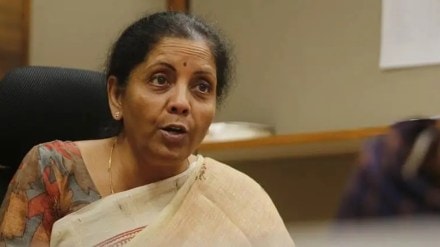India is open to “exploring more ways” to increase its collaboration with the International Monetary Fund (IMF), finance minister Nirmala Sitharaman said during a meeting with IMF’s first deputy managing director Gita Gopinath on Saturday.
During the meeting, Gopinath congratulated Sitharaman on policy continuity on the fiscal consolidation path, and appreciated the strength of India’s relationship with IMF, which, she said, is “valuable to both India, IMF, and to the world at large”.
Speaking at an event at the Delhi School of Economics, Gopinath mentioned that the multilateral agency is now addressing “newer forms of crises” across the world. She said the IMF is providing long-term financial support to low-income countries to help them tackle climate change, reduce poverty, and restructure debt. And for that purpose, India, China, Saudi Arabia are among some countries that are providing financial support, which was not the case earlier.
On the country’s fiscal consolidation roadmap, Gopinath said the right approach for that would be to increase revenues and not necessarily reduce overall spending. However, she mentioned the need to provide targeted fertiliser subsidy, as it has a high outlay.
On taxes, she mentioned that revenue as a percentage of GDP can increase by broadening the tax base, both on personal income tax and GST. “If you simplify the GST rates and broaden the base…you can raise 1% of revenue as a percentage of GDP,” she said, adding that exemptions given in personal income tax should be cut down further.
Also, structural reforms need to go on all the time to improve the fiscal situation without constraining growth, noted the IMF’s deputy MD.
She said on an average tariff rates (customs duties) are higher in India as compared to other peer economies. “To be part of global supply chains, those tariffs will have to be reduced,” she mentioned.
Further, between now (2024) and 2030, India will have to create anywhere between “60-148 million additional jobs cumulatively”, if it aims to become an advanced economy by 2047, said Gopinath.
She said that India’s workforce has to be more skilled, and policies have to be directed towards that. “The number of years of formal education of the workforce in India, compared to its G20 peers, is on the lower end… that has to improve,” she said.
Gopinath pointed out that India on average grew around 6.6% from 2010 to 2020, but during that period employment growth was under 2%. “Growth in India, as compared to other emerging market economies, has been much less employment driven, rather more capital-intensive.”
And to change that, reforms are necessary. The labour codes passed in 2019-2020 should be implemented. Anything that the Centre can do to incentivise the states to enforce the codes, should be done, said Gopinath.
The Narendra Modi government in 2019-20 had consolidated as many as 44 labour-related acts into four codes with the objective of reinforcing trade and investment, facilitating ease of doing business and reducing compliances, addressing the issue of decriminalisation, addressing skill development needs, and dispute resolution.
The four codes are: Code on Social Security 2020; Occupational Safety, Health and Working Conditions Code 2020; Industrial Relations Code 2020; and Code on Wages 2019.
On automation, the IMF’s deputy MD said the government should make policies to benefit from it, but not favour it inadvertently, as it may lead to job losses.
She emphasised on the requirement of better social security system, where security to the unemployed is also provided, and the workforce is reskilled from time to time to adapt new and emerging technologies.
Gopinath further said that corporate investment has to increase, it’s not as much as it should be for an economy growing at 7%. She added that the government should invest more in infrastructure, and make the judicial system more efficient.
